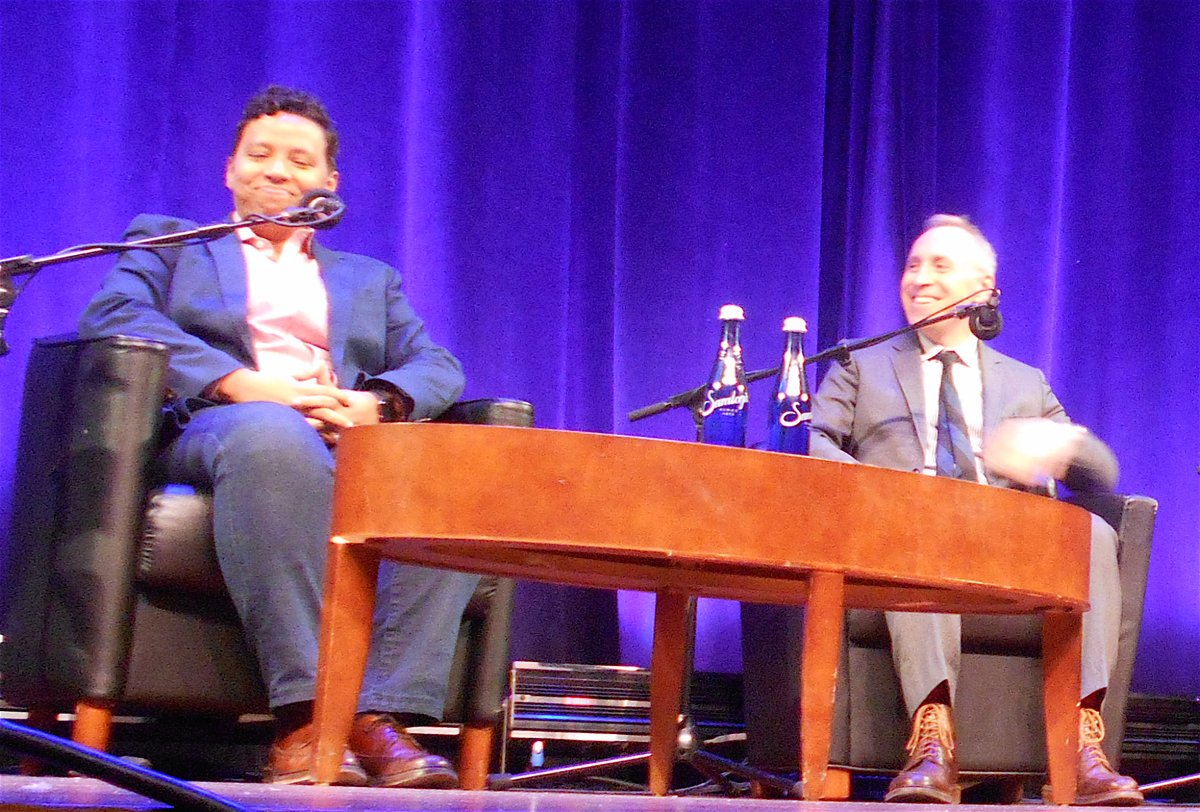
BY MARY REINHOLZ | Donald Trump’s war against the press recently got some fierce blowback from a group of top journalists meeting onstage at New York University’s Skirball Center auditorium.
They had gathered there for a panel discussion, titled “Not The New Normal,” on how to cover the new president in a changing media landscape pockmarked by fake news, disinformation and outright lies, many emanating from the White House, they said.
“How do you cover a beast like Trump?” inquired Jay Rosen, press critic and N.Y.U. journalism professor, in his introduction. He contended that Trump had begun his political career attacking the legitimacy of President Barack Obama’s birth certificate and later ascended to the Oval Office, “in part, by turning the press into a hate object” and creating doubt about facts and even scientific findings in a “post -fact” and “post-truth” society.
Given the environment, Rosen predicted the press would have a difficult time combating Trump’s varied falsehoods, even if it “publishes Watergate-style revelations.”
His remarks received strong applause from attendees at the sold-out event, many of them N.Y.U. journalism students. It was sponsored by Slate, with proceeds from the sale of the $30 tickets going to the Committee to Protect Journalists. Audience members asked questions, such as why colleagues of CNN’s Jim Acosta had failed to stick up for him when he was “blackballed” by Trump at a pre-inaugural press conference. The question drew loud cheers.
CNN’s Brian Stelter served as the moderator for the discussion by four panelists: David Remnick, editor of The New Yorker; Jacob Weisberg, chairperson of the Slate Group and creator / host of “The Trump Podcast”; Borja Echevarria, vice president and editor in chief of Univision; and Lydia Polgreen, the new editor in chief of Huffington Post.
Stelter asked Polgreen if Huffington Post considered itself at war with Trump.
“We certainly don’t want to be at war with the president of the United States,” she said, adding, however, that Trump seems to “need a bogeyman. He needs someone to point to as the culprit who’s getting away with his trying to make America great again. At one point, it was immigrants; at another point it’s Muslims. I think we’re a very convenient target.”
Weisberg observed that the New York real estate mogul-turned-commander in chief has clearly withstood journalistic scrutiny thus far.
“It’s a matter of record that Donald Trump is a flim-flam man,” he said. “Just read his autobiography. It tells you that he lies. We have a spectacular amount of information about his life as a businessman and as a politician. But he won! He occupies the Oval Office. So there’s a huge job to be done.”
Weisberg suggested canceling the annual White House Correspondents’ Association Dinner.
“The idea that, faced with his attacks on how we do our jobs, we’re going to invite this guy to come and mock us in person is just abhorrent,” he said.
The panelists also criticized themselves. Polgreen said there has been a erosion of trust, in the media, particularly among “low-information,” working-class Americans who voted for Barack Obama in 2012 but turned to Trump in 2016.
For his part, Remnick of The New Yorker enjoined journalists to “buck up! This is the time, like never before, to do your work ferociously and honestly and fearlessly! And as down as you may feel, in so many ways there is wind at your back,” he said.
Remnick then spoke about the “hundreds of thousands of people” in the streets of Washington, D.C., for the Women’s March one day after Trump’s inauguration.
“They were saying something to that person in the White House. ‘I’m not going to lay [sic] down,’ ” he said.
“This is not the election of a conservative as opposed to a liberal or Republican versus a Democrat,” he added. “An authoritarian, demagogic style has come to power. If you’re not energized by that prospect as a journalist, then you should become a certified public accountant.”

































